Disclosure: We may get commissions for purchases made through links in this post.
Moss on your pavers can leave unsightly marks and ruin their look. Worse, they can make your pavement very slippery. In this article, we'll teach you how to remove these small plants from your pavers. We sought the advice of experts and here are their tips.
You can apply boiling water, vinegar-water solution, baking soda, or a bleach solution to your pavers then scrub the moss off the surface. If the problem persists, you can buy commercial products specially formulated to kill moss.
Keep on reading so we can teach you how each method works. We'll also answer if you should let moss grow between pavers and if you can pressure wash the moss off a driveway. We'll also give you tips on how to prevent moss from invading your pavement. Let's begin!
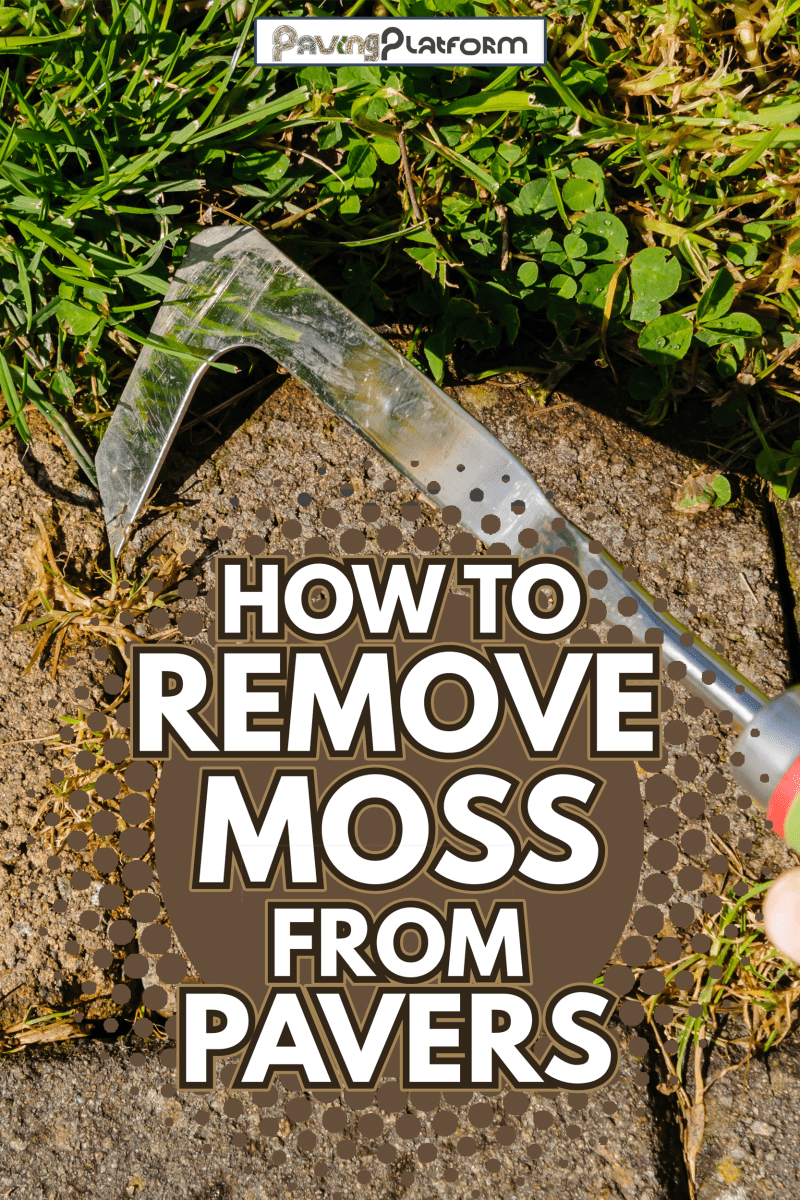
How do I get rid of moss on my pavers?
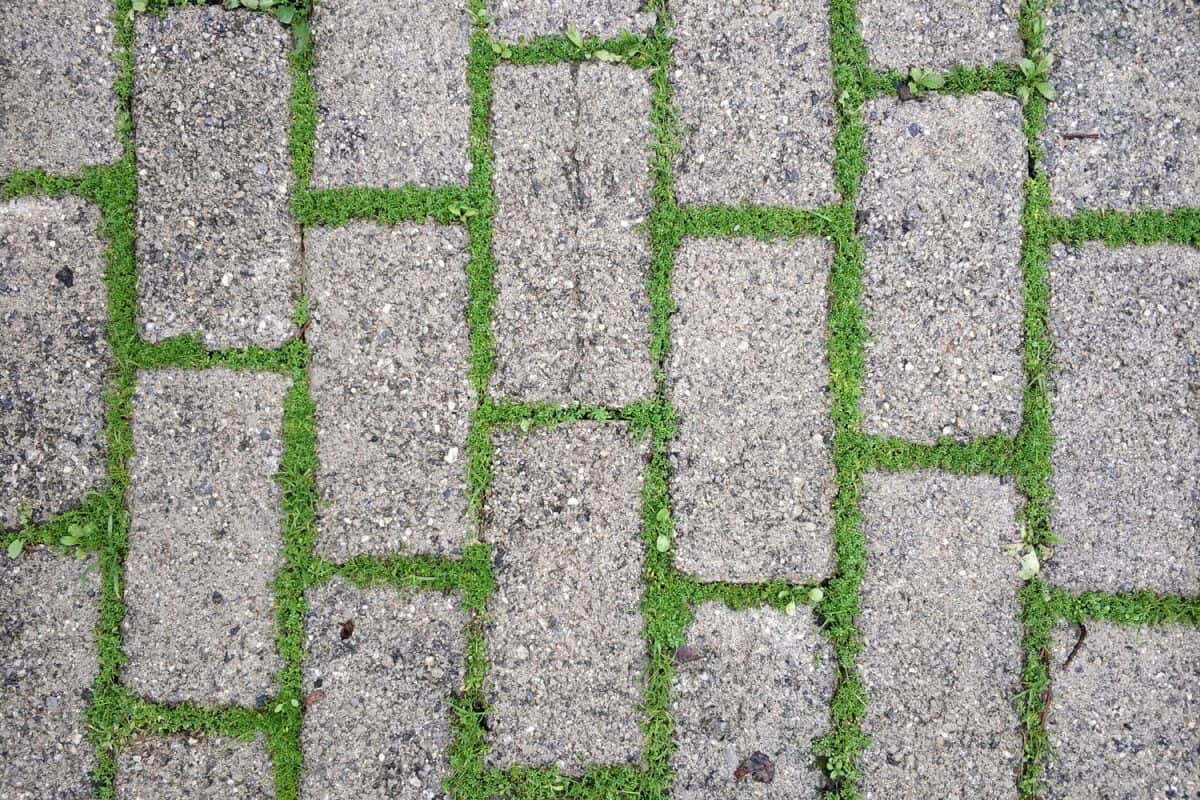
Moss are those small, green, velvety, and low-growing plants that thrive in damp and dark places, typically in outdoor areas. They can multiply fast and ruin your pavers. We know that you've invested so much in your pavers and you wouldn't want that to go to waste. So, without much further ado, here are the different methods to kill moss on your pavement.
Boiling Water
You can pour boiling water to kill the moss on your pavers. This is a natural and inexpensive way of making your patio, pathways, and driveway moss-free. To make it more effective, scrub the surface with a stiff brush and sweep the uprooted moss away.
Vinegar-water Solution
This is another natural way of killing moss. You probably have vinegar in your pantry so you can get started on your moss-killing spree right away. Just mix equal parts of vinegar and water. You can put this solution in a spray bottle. Make sure that you apply it on the affected pavers only.
Saturate them with the vinegar-water solution. Let it sit for at least 15 minutes before you scrub the surface. Use a hose to rinse everything off with water.
Baking soda
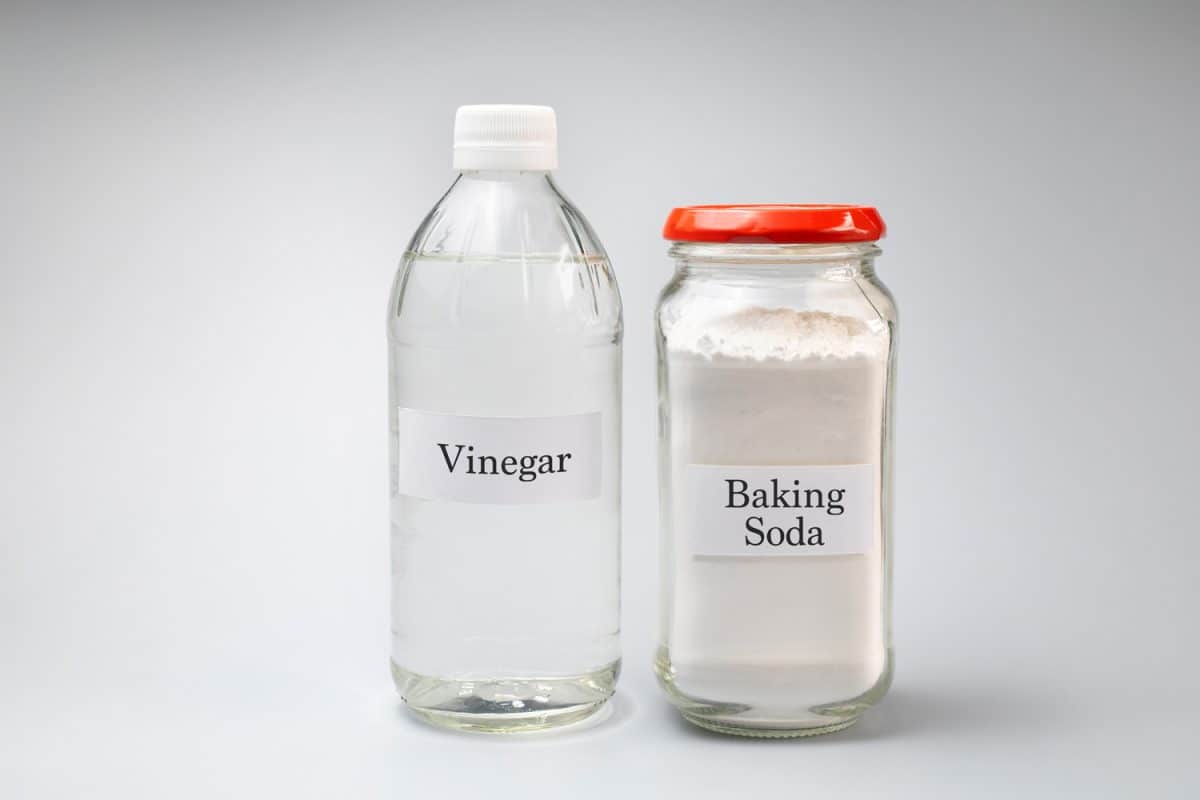
Homeowners can attest to the many benefits and applications of baking soda outside of the kitchen. Add your mossy pavers to the list.
Sprinkle a generous amount of baking soda on the pavers and leave it there for a whole day. The following day, use a broom to remove the baking soda on your surface. Remove the dead moss by scrubbing the area.
Bleach Solution
If your moss problem cannot be solved with the above methods, it's time to use bleach. Mix equal parts of bleach and water and put the solution in a sprayer. This is to ensure that you only apply the bleach to the affected area as it could possibly damage other pavers as well as nearby plants in your patio or pathway.
Before this treatment, clean your pavers first using a brush or broom. Wear protective gear to prevent skin and eye irritation. Spray the bleach solution and leave it there for about 15 minutes. Scrub and rinse immediately afterward.
Commercially-available Moss Killers
If the above methods still don't work, you can go buy these commercial products that have been proven effective in killing stubborn moss. Just be sure to check the labels if they are safe to use on pavers and follow the manufacturers' instructions when applying them to your mossy surfaces.
Click this link to find this moss killer on Amazon.
Check out which of these methods will work on your pavers. Their effectiveness would depend on how severe your moss problem is.
Should you let moss grow in between pavers?
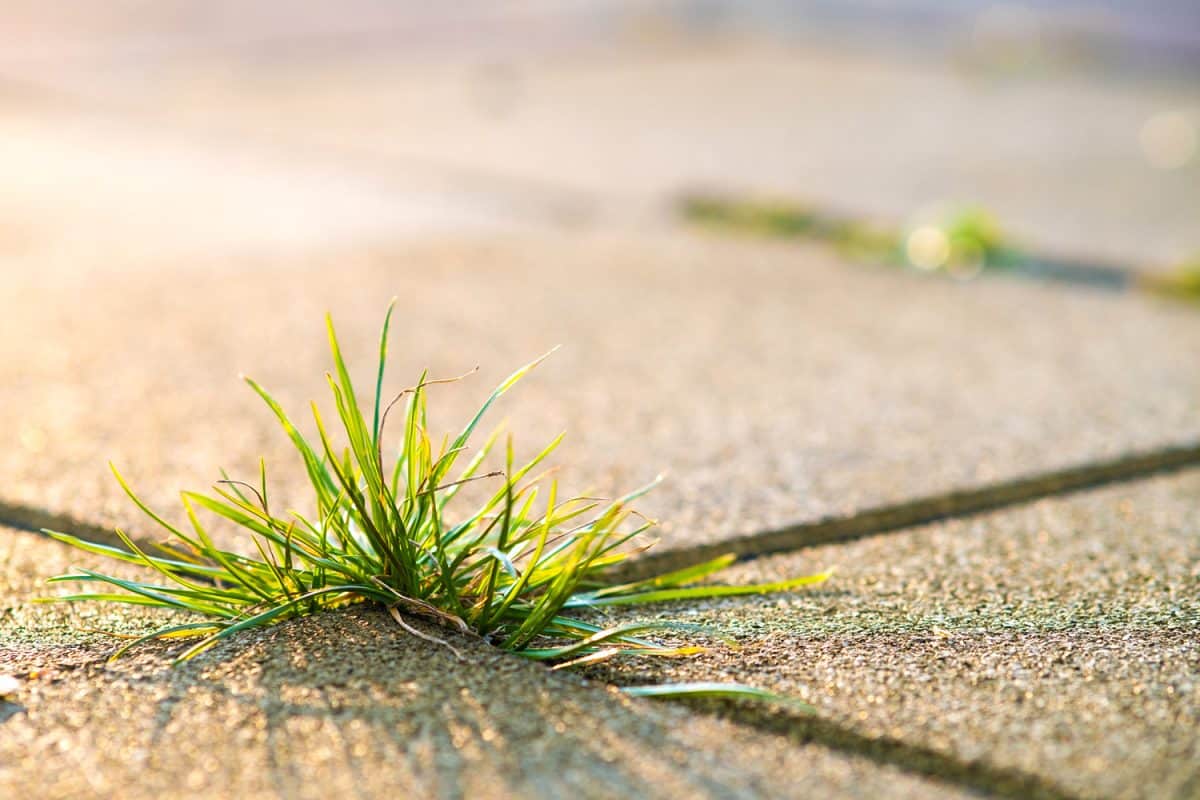
Some homeowners may find moss to be attractive and intentionally grow them to make their outdoor space more beautiful. Moss can give a natural look to your pavers and soften their appearance. It can add to the charm of your patios and pathways.
But some homeowners find moss to be a nuisance. First, these plants present a safety risk. They cause your surface to become slippery making accidents very likely to happen.
Second, they can possibly ruin your pavers. They love moisture and need water to survive so that means the surface where they grow is always wet. Water can weaken the composition of your paving material.
Lastly, moss leaves marks or stains on your hardscape that ruin its appearance. That is why many homeowners are looking for ways to make their surfaces moss-free so that they can have tidier and safer pavers in their outdoor space.
Can you pressure wash moss off a driveway?
For those who are asking, yes, you can use a pressure washer (but not a power washer) to remove moss from your driveway. But of course, it's best to check the material used for your pavement.
This is recommended if your driveway is made of concrete, bricks, asphalt, or gravel. And even if these are durable materials, you still have to be mindful of the amount of pressure used while cleaning and removing the moss from their surfaces.
For example, using high pressure can remove the sealant on concrete and asphalt. This could weaken these materials as they'll lose that extra layer of protection against environmental conditions.
To be safe, put the settings at 2,000 to 2,800 psi at a rate of 2 to 4 gallons a minute. This will be enough to get rid of moss on the surface efficiently without you having to worry about damaging your surface. Water should be able to accomplish the job but if you also want to clean your driveway, you can add soap or bleach solution.
But make sure you know how to properly operate a pressure washer. These are powerful equipment that can cause serious harm to you and your property if not used correctly.
How do you stop moss from growing on pavers?
If there is no moss on your pavers, good for you. But be vigilant because you might not notice it growing on hidden portions of your patio or pathway and it might spread to the rest of your pavement without you knowing it.
To keep moss from growing on your beautiful pavers, you must ensure that these conditions do not exist: dampness, limited ventilation, and sunlight. Remember, moss loves moist places because that's where they get their source of nutrition. It's also very convenient for them to multiply when no sun or wind can dry out their water source.
Trim the Landscaping
Homeowners can trim the trees, bushes, and other plants growing near the pavers to allow adequate sunlight and wind to pass through. Moss loves hiding in the shade so don't give them what they want.
Clean the Pavers
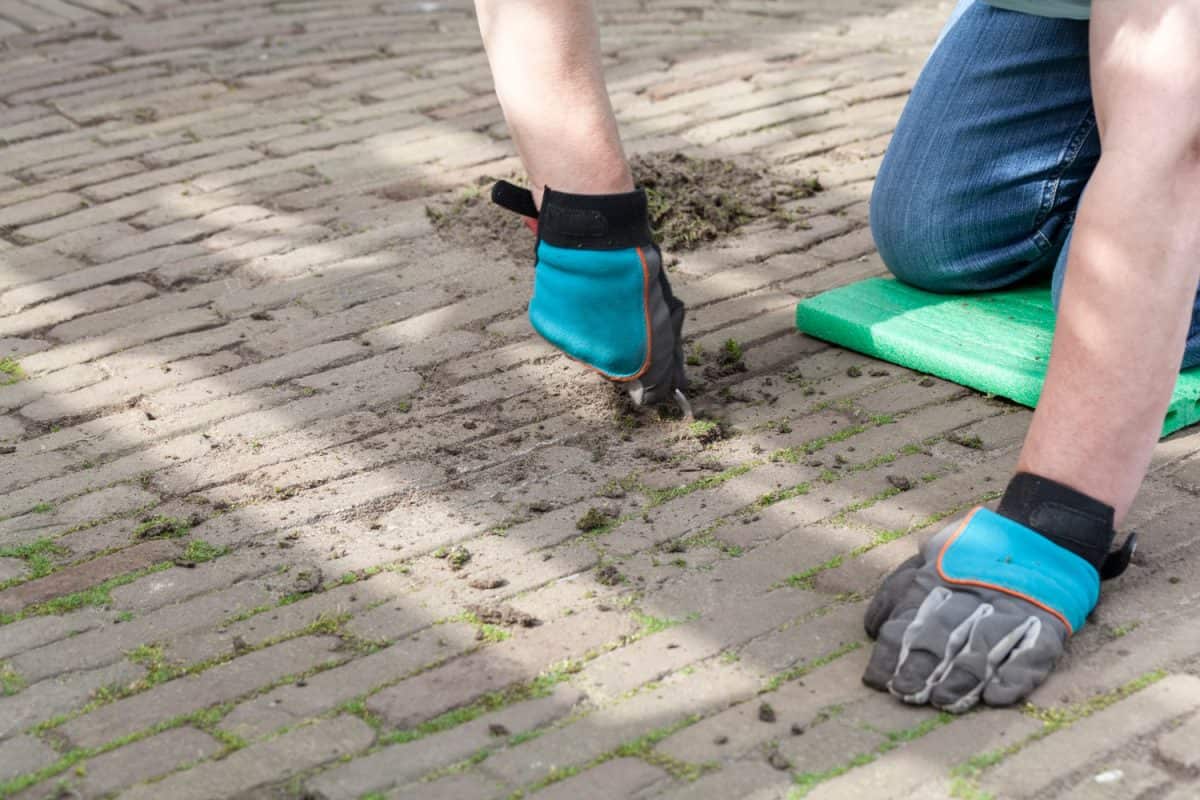
Homeowners should also see to it that the pavers are always clean. Make sure they are free of dirt, dust, debris, and mulch. These particles will make it easier for moss to thrive on your surface. Mosses do not have roots. They only have rhizoids or tiny threads that allow them to grow and multiply on your pavers.
You can use a broom to remove loose dirt and unwanted particles on your pavers. A leaf blower will also be useful. If needed, you can wash your pavers using a wet mop and soapy water to give them some thorough cleaning.
Properly Drain the Paver Surface
Make sure that your surface is dry. When you see water pooling in certain portions, you can use a broom to divert the water towards your drainage system. It's also best to address the issue that's causing water to accumulate on your pavement so that you won't have to deal with this kind of problem repeatedly.
A clean, dry, and well-ventilated surface is not a place where moss would survive.
Final Thoughts
There are different methods to get rid of moss on your pavers depending on the severity of the problem. We always recommend going with the natural ways first so that you can be sure that you won't damage your pavement. Be extra careful when using chemicals to avoid harming yourself and your pavers.
If you want to read more about pavers, feel free to visit the following links:


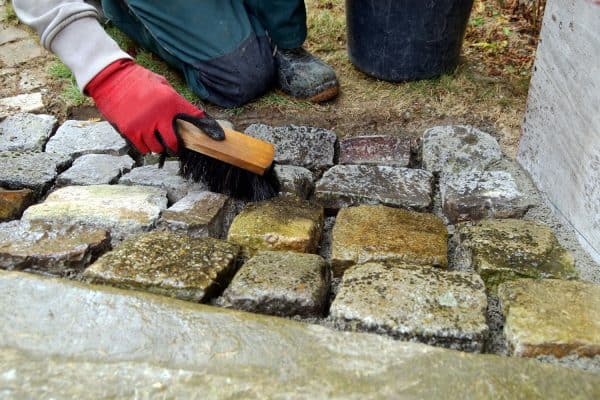
![Blue stone pavers on the garden patio, How To Clean Bluestone Pavers [Care & Maintenance Tips]](https://pavingplatform.com/wp-content/uploads/2022/03/Blue-stone-pavers-on-the-garden-patio-600x400.jpg)
![washing services - block paving cleaning with high pressure washer - Can You Pressure Wash Travertine Pavers? [Best Cleaning Methods]](https://pavingplatform.com/wp-content/uploads/2022/03/washing-services-block-paving-cleaning-with-high-pressure-washer-600x400.jpg)